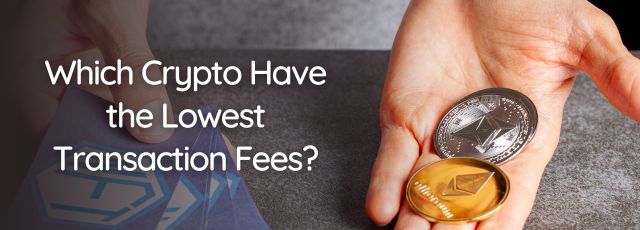Cryptocurrencies have become increasingly popular in recent years due to their decentralized nature and ability to facilitate fast, secure and low-cost transactions. While transaction fees are typically much lower than those charged by traditional financial institutions, some cryptocurrencies have higher fees than others.
In this article, we will look at the top 5 cryptocurrencies with the highest transaction fees and explore some factors that affect these fees. For the ultimate Bitcoin trading experience, as well as access to other cryptocurrencies, consider visiting the official website of BitProfit App.
What are Transaction Fees in Cryptocurrencies?
Before delving into the top 5 cryptocurrencies with the highest transaction fees, let’s first define what transaction fees are in cryptocurrencies. Transaction fees are fees charged by cryptocurrency networks to process transactions on their blockchains.
Top 5 Cryptocurrencies With the Highest Transaction Fees
1. Bitcoin (BTC)
Bitcoin is the most widely used and recognized cryptocurrency in the world, and it also has the highest transaction fees. As of April 2023, the average transaction fee for a Bitcoin transaction is around $10. This is due to the high demand for Bitcoin transactions and the limited block size of the Bitcoin blockchain.
2. Ethereum (ETH)
Ethereum is the second-largest cryptocurrency by market capitalization, and it also has relatively high transaction fees. As of April 2023, the average transaction fee for an Ethereum transaction is around $3. This is due to the increasing popularity of decentralized applications (DApps) built on the Ethereum blockchain, which are contributing to network congestion.
3. Litecoin (LTC)
Litecoin is a cryptocurrency that was created in 2011 as a faster and cheaper alternative to Bitcoin. While Litecoin’s transaction fees are generally lower than those of Bitcoin and Ethereum, they are still relatively high. As of April 2023, the average transaction fee for a Litecoin transaction is around $1.50.
4. Bitcoin Cash (BCH)
Bitcoin Cash is a cryptocurrency that was created in 2017 as a result of a hard fork in the Bitcoin blockchain. While Bitcoin Cash’s transaction fees are generally lower than those of Bitcoin, they are still higher than many other cryptocurrencies. As of April 2023, the average transaction fee for a Bitcoin Cash transaction is around $2.
5. Ripple (XRP)
Ripple is a cryptocurrency that was created in 2012 and is designed to facilitate fast and low-cost transactions. However, despite its low-cost transaction model, Ripple’s transaction fees are higher than many other cryptocurrencies. As of April 2023, the average transaction fee for a Ripple transaction is around $0.50.
Factors That Affect Transaction Fees
Several factors can affect the transaction fees charged by cryptocurrencies. Some of these factors include:
- Network Congestion
When a cryptocurrency network is congested, transaction fees tend to be higher. This is because miners prioritize transactions with higher fees in order to maximize their earnings.
- Supply and Demand
The law of supply and demand also applies to transaction fees in cryptocurrencies. When there is high demand for network resources and limited supply, transaction fees tend to be higher.
- Block Size
The size of a cryptocurrency block can also affect transaction fees. Cryptocurrencies with smaller block sizes, such as Bitcoin, can only process a limited number of transactions per block. This means that there is often high demand for transaction processing, leading to higher fees.
- Alternatives to High Transaction Fees
While some cryptocurrencies have higher transaction fees than others, there are several alternatives that users can consider to reduce their transaction costs. Some of these alternatives include:
- Using Cryptocurrency Exchanges
Cryptocurrency exchanges, such as Coinbase and Binance, allow users to trade cryptocurrencies without paying high transaction fees. However, users should be aware that exchanges may charge other fees, such as trading fees and withdrawal fees.
- Using Segregated Witness (SegWit)
Segregated Witness (SegWit) is a protocol upgrade that reduces the size of transaction data, allowing more transactions to be processed per block.
- Using the Lightning Network
The Lightning Network is a second-layer solution that allows users to send and receive cryptocurrencies instantaneously and with low fees.
Conclusion
In conclusion, transaction fees are an important aspect of cryptocurrencies that can significantly impact the cost of transactions. While some cryptocurrencies have higher transaction fees than others, there are several factors that affect these fees, including network congestion, supply and demand, and block size. Additionally, there are several alternatives that users can consider to reduce their transaction costs, such as using cryptocurrency exchanges, SegWit, and the Lightning Network.
